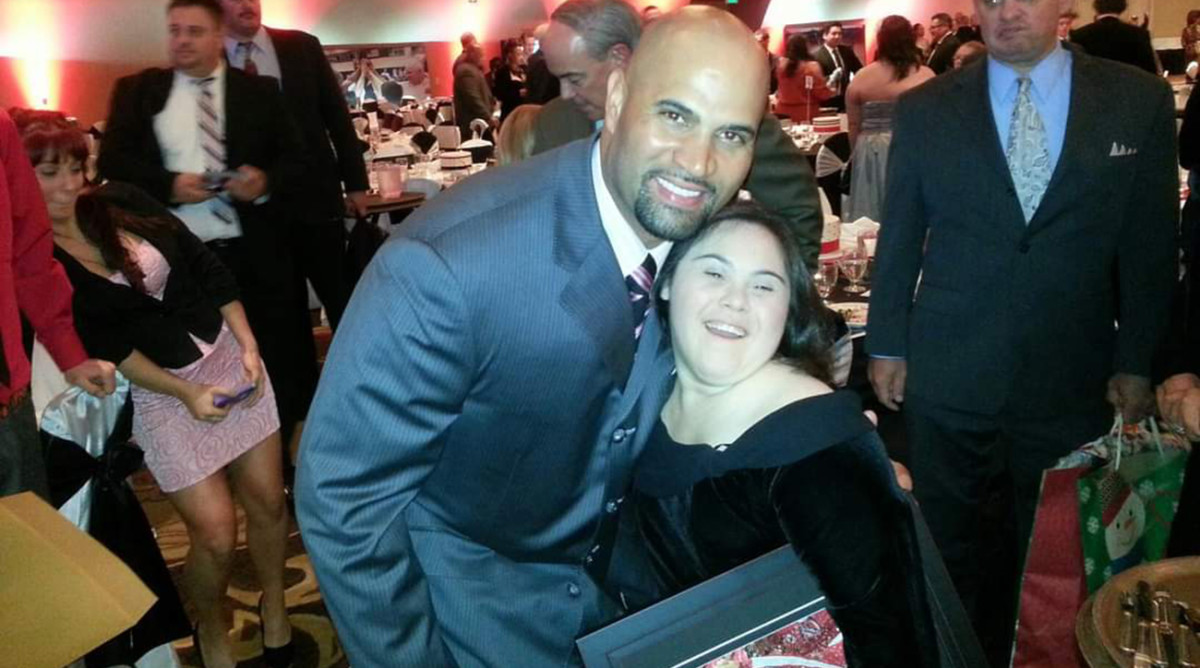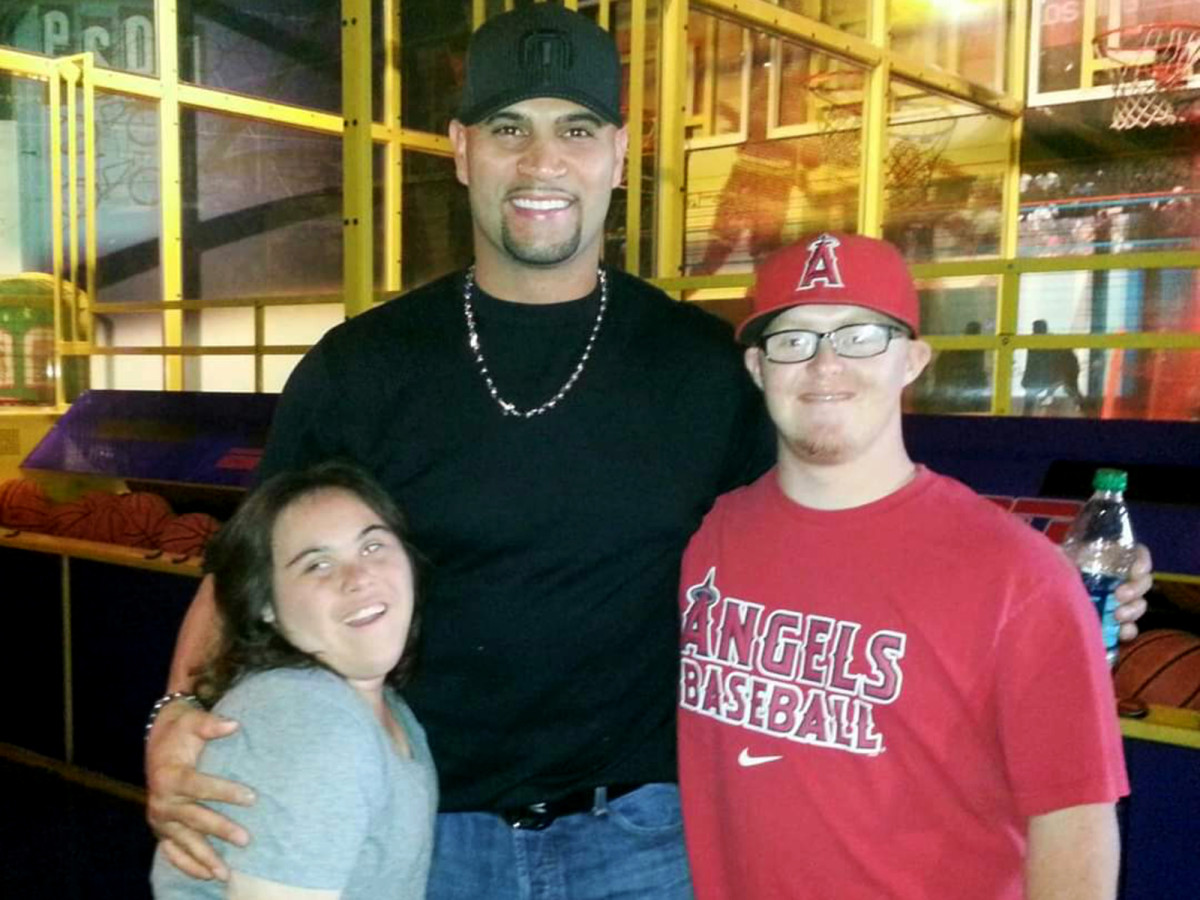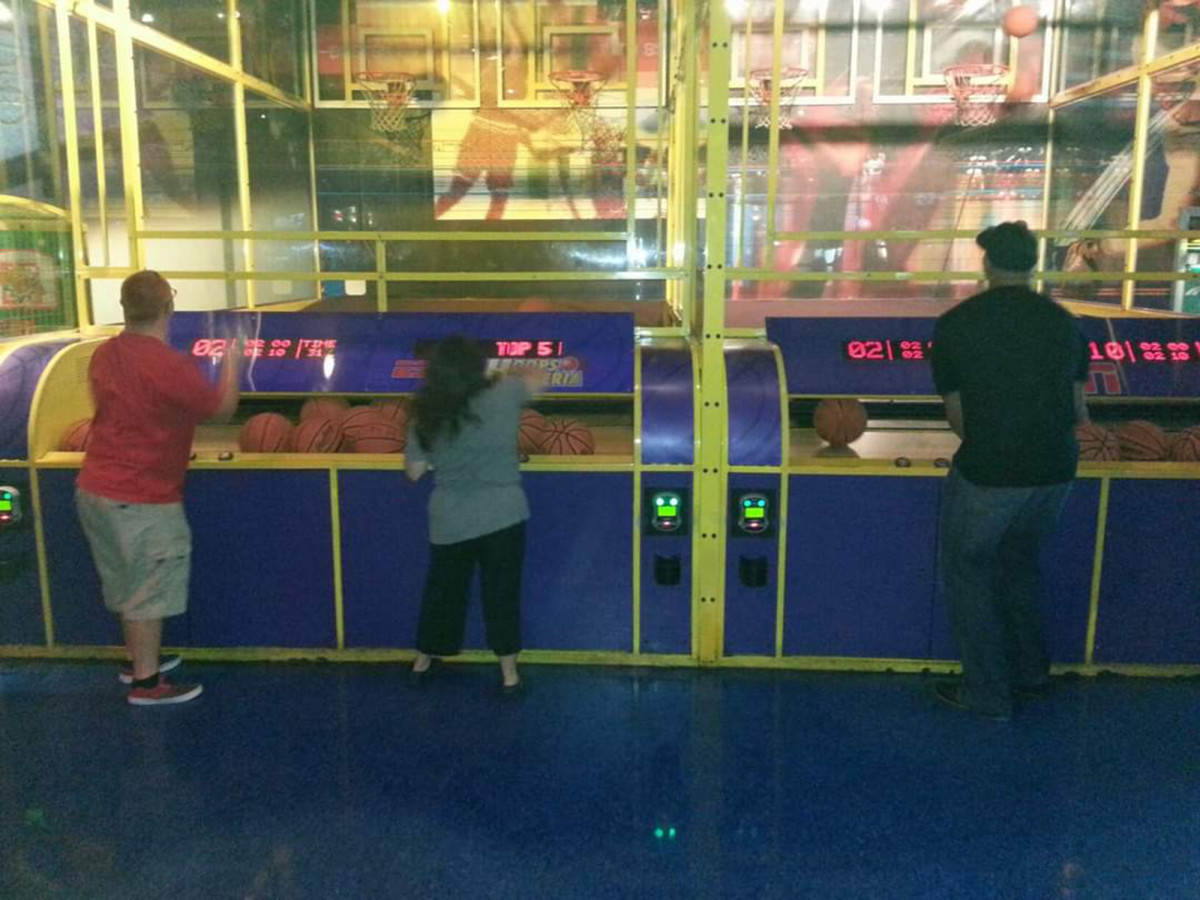Albert Pujols's Greatest Impact With the Angels Came Within the Down Syndrome Community

He always looked Jeremy in the eye. That’s what Lisa Fraser keeps thinking. He never talked around him, like he wasn’t there.
Angels fans will remember the 500th home run and the 3,000th hit. Cardinals fans will remember the three MVP awards and the two World Series titles. If indeed Albert Pujols’s baseball career is over, as it seemed to be on Thursday when Los Angeles designated him for assignment, then fans of the sport will remember him as the 13th-round pick made good, the person who finishes as the active leader in games played (2,886), plate appearances (12,486), at bats (10,925), runs (1,852), hits (3,253), doubles (669), home runs (667), RBIs (2,112), walks (1,334) and WAR (99.4).
But there is another, quieter constituency that is mourning the end of Pujols’s time with the Angels: people in Orange County with Down syndrome.
Lisa, whose 21-year-old son, Jeremy, has Down syndrome, chokes up when she hears that Pujols, 41, will be leaving the team.
“He’s a super all-around good person,” she says. “They’re a good family, with really a desire to be impactful in our community and to promote not just awareness, because I think awareness is one aspect, but also acceptance: seeing people with Down syndrome out in the community doing things that they love. ... I'm so sad to know that they may no longer be here.”
Pujols was an 18-year-old community college shortstop when he met his future wife, Deidre. On their first date at the Cheesecake Factory in Kansas City, Deidre told Albert that she had an infant daughter, Isabella, who had Down syndrome. Two years later, they were married, and Pujols became Dad. Five years after that, they started the Pujols Family Foundation, which works with children with Down syndrome and their families. In 2008 he won the Roberto Clemente Award for his community service.
The foundation keeps its headquarters in St. Louis, where Pujols spent the first 11 years of his career, but when he signed with the Angels before the 2012 season, he expanded its operations to include Orange County, where he, Deidre and their five children reside. They hosted cooking classes and golf tournaments for children with Down syndrome, often inviting other stars, including Mike Trout. They threw proms for high schoolers with Down syndrome. They facilitated the hiring of some young adults with Down syndrome as greeters at team stores at arenas. They invited them and their families to attend games at Angel Stadium. Even as the pandemic swept the country, they moved the events onto Zoom so that kids could stay connected.
“I think the overarching goal was always to give people with Down syndrome an opportunity to do everyday, average things that any other person would do,” Lisa says.

The first time Pujols hosted them at Angel Stadium, a half dozen people with Down syndrome and their families gathered in a suite down the first base line. Pujols stopped by before the game and the kids asked him to hit a home run for them. “Albert stepped up to bat ... and nailed it!” recalls Kellie Perez-Tuchowski, whose 28-year-old daughter, Alex, has Down syndrome. He pointed at the suite as he rounded the bases.
He had them back on a night that ended in fireworks. As the display began, the foundation staff realized that an overhang blocked the kids’ view. They rushed them down the hall to Pujols’s own suite, where his family sat. Pujols joined them for the show. For Jeremy, a huge Angels fan, “It was like walking into the gates of Heaven,” Lisa says.
Later, Pujols signed a ball for Jeremy, who gave it to his younger brother, Matthew, a similarly obsessed Angels fan. When Pujols heard that, he grinned and signed another one. “This one’s for you,” he told Jeremy.
Over the years, people with Down syndrome and their families came to consider Pujols to be their friend. He addressed them by name and asked them about their lives. At an event at ESPN Zone a few years ago, he caught sight of Alex Tuchowski and joined her in a game of pop-a-shot basketball. Jeremy still comments on Pujols’s accomplishments “as if he’s in the inner circle,” Lisa says.

Five years from now, Pujols will most likely be inducted into the Hall of Fame on the first ballot. Fans of Albert Pujols the Angel and Albert Pujols the Cardinal will watch. So will fans of Albert Pujols the person.
More Albert Pujols Coverage:
• Verducci: The Wonder of Albert Pujols
• Selbe: The Best Potential Landing Spots for Albert Pujols
• Laws: Angels' Problems Run Deeper Than Pujols
